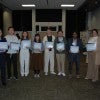
Rice’s Center for Nanoscale Imaging Sciences hosted its inaugural workshop Nov. 14-16.

Rice’s Center for Nanoscale Imaging Sciences hosted its inaugural workshop Nov. 14-16.
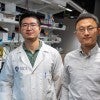
Reactor developed at Rice could make direct air capture more energy efficient
Rice researchers have developed an electrochemical reactor that has the potential to drastically reduce energy consumption and cost for direct air capture.
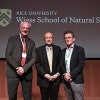
The inaugural Art and Science of Total Synthesis of Natural and Designed Molecules for Biology and Medicine symposium brought together some of the world’s most renowned organic chemists.
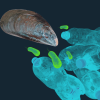
Rice researchers bioengineer mussel-inspired sticky microorganisms to help break down plastic waste
Rice scientists have tapped into the sticky power of mussels to create bioengineered microorganisms that could help transform environmental cleanup.
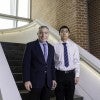
Researchers innovate sustainable metal-recycling method
A research team led by James Tour has developed a method to recycle valuable metals from electronic waste more efficiently.

Renowned Rice chemist K.C. Nicolaou aims to ‘help society’ through discovery
World-renowned organic chemist K.C. Nicolaou will present his research at the Art and Science of Total Synthesis of Natural and Designed Molecules for Biology and Medicine symposium Oct. 2-4 in Paris.

Rice researchers uncover key insights into cholesterol’s structure in cell membranes
A new study by Rice researchers could open new pathways for understanding how cholesterol influences cell membranes and their receptors.

World’s top organic chemists to assemble in Paris for inaugural symposium
Rice’s Global Paris Center to host Art and Science of Total Synthesis of Natural and Designed Molecules for Biology and Medicine symposium.
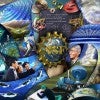
Rice graduate students awarded NSF INTERN grants for real-world research opportunities
Rice graduate students Eric Wuesthoff and Esther Jimenez are the recipients of the National Science Foundation’s INTERN awards.
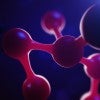
Researchers teaching artificial intelligence about frustration in protein folding
Peter Wolynes and his colleagues have found a new way to predict how proteins change their shape when they function.
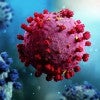
Researchers make breakthrough in fight against COVID-19
Jose Onuchic is part of a research team that has made a discovery in the fight against SARS-CoV-2, the virus responsible for COVID-19.

New twist on synthesis technique developed at Rice promises sustainable manufacturing
James Tour’s lab at Rice has developed a new method known as flash-within-flash Joule heating.
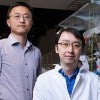
Rice-built reactor yields green ammonia and purified water
Rice engineers have developed a revolutionary reactor design that could decarbonize ammonia production while also mitigating water pollution.
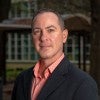
Angel Martí elected fellow of the American Chemical Society
Rice’s Angel Martí has been elected a fellow of the American Chemical Society, one of his discipline’s highest honors.
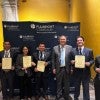
Rice is top destination for Mexican students who receive Fulbright awards
Seven master’s and Ph.D. Fulbright recipients from Mexico will study at Rice this fall, the most of any university and nearly double the number of any other university, including Rice’s Association of American Universities peers.